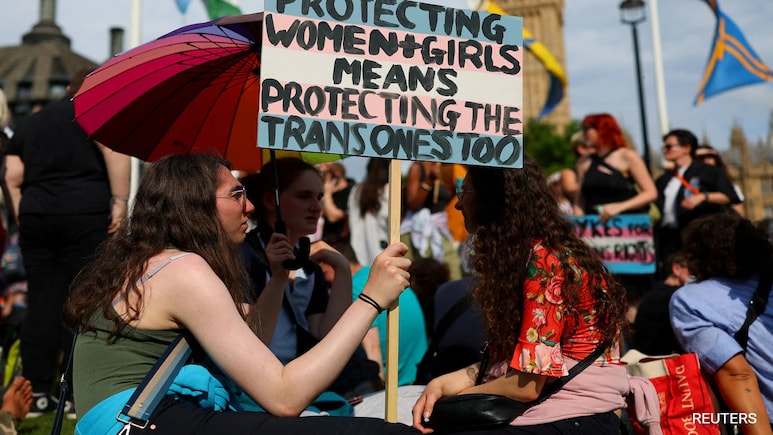
- Nate Rae's legal recognition changed after UK Supreme Court ruled sex means biological sex in law
- EHRC guidance advises barring transgender people from gender-specific facilities like toilets and wards
- Since ruling, Rae faced harassment and exclusion using female toilets, affecting his daily safety
Nate Rae had always felt secure living openly since coming out as a transgender man in his late 20s - until a recent UK Supreme Court ruling on the legal definition of biological sex changed everything.
Now, Rae - a PhD student and science communicator who grew up in a small Scottish town before moving to London - says he finds himself constantly weighing risks and assessing where it is safe - or unsafe - for him to be.
In April, the court affirmed that under equality laws, the term "sex" refers to biological sex, meaning a transgender woman is legally considered male, and a transgender man is considered female.
Equality watchdog EHRC stated in its interim guidance on the ruling's practical implications that transgender people should be barred from facilities and services, from toilets to hospital wards and refuges, designed for the gender they live as.
"It's almost like it's been made legal to harass trans people," Rae, 33, told Reuters in an interview at Gay's The Word, Britain's oldest LGBT+ bookshop, saying he was now "hyper aware" of people noticing him.
"I've got to factor in things that I'd never had to factor in before," he said. "Where can I go? Where am I safe?"
TRANSGENDER RIGHTS A FLASHPOINT
Rae, who only started to medically transition last year, often uses the women's bathroom as he feels he is still largely perceived as female.
Since the ruling, Rae has been told several times that he cannot use a certain bathroom and has been called "disgusting" when using a female toilet. On one occasion, someone approached him to ask: "Do you know there are kids here?"
Transgender rights have become a political flashpoint in Britain and elsewhere. In the US, President Donald Trump has targeted the rights of transgender people in a series of executive orders.
Some critics of the policies say the conservative right has weaponised identity politics to attack minority groups.
But others argue that support for transgender people has infringed on the rights of biological women and their safety in spaces such as hospitals, prisons and domestic violence refuges.
Britain's government said the judgement brought clarity and a clear position to underpin gender policies, but for many transgender people, including Rae, it has left them feeling excluded from parts of society.
A report released in August by transgender rights group TransActual highlighted how, since the ruling, some trans people have planned to leave the country, concealed their identities, avoided public spaces like hospitals, felt outed at work, or have withdrawn from social life altogether.
Asked about the detrimental impacts of the ruling cited by transgender people, a government spokesperson said laws were in place to protect trans individuals from discrimination and harassment.
YOUNG TRANS PEOPLE 'TERRIFIED'
Following a consultation, the EHRC, which is responsible for enforcing equality laws, submitted its updated draft guidance to the government at the start of September and parliament is expected to consider it by the end of the year.
Keyne Walker, strategy director for TransActual, said the interim guidance is already having a "dire effect" and said the EHRC's interpretation of the judgement could have been far less "extreme".
Some organisations have already updated their transgender policies. The Football Association has barred transgender women from competing in women's soccer in England, and the British Transport Police now requires same-sex searches in custody to be conducted according to a detainee's biological sex.
A spokesperson for the EHRC said everything they had done since the judgement was grounded in the law, and the guidance shared with the government was both legally accurate and clear.
Rae fears the court's decision will discourage people from living freely in their chosen gender and threatens their safety if they do, as it has shifted public perceptions of transgender people.
"Every young trans person I've spoken to is terrified," said Rae, who teaches science to young people as part of his job, adding that many were now questioning: "Am I going to be able to live the life I want to live as the person I want to be?"
(Except for the headline, this story has not been edited by NDTV staff and is published from a syndicated feed.)
Track Latest News Live on NDTV.com and get news updates from India and around the world

